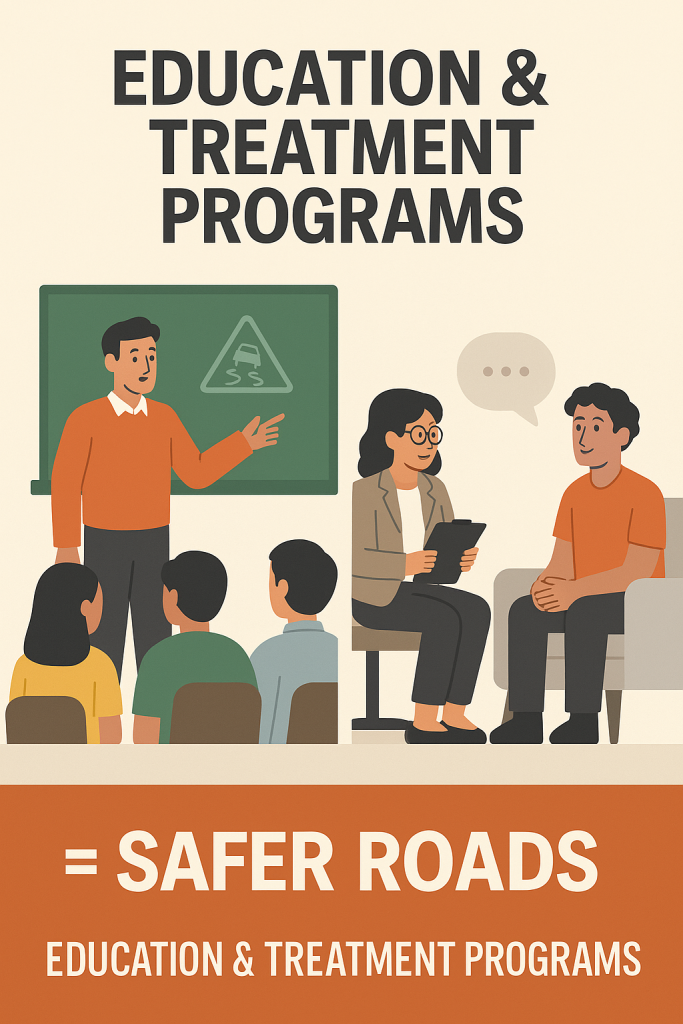
Introduction
Utah takes a proactive approach to reducing impaired driving by requiring certain drivers to complete education and treatment programs. These programs are designed not only as a penalty but also as an opportunity for individuals to recognize risky behaviors, learn safer choices, and address underlying substance abuse issues.
Education Programs
-
DUI Education Class: A state-approved course covering the dangers of impaired driving, the effects of alcohol and drugs, and legal consequences.
-
Traffic Safety Education: Emphasizes decision-making skills, responsibility, and alternatives to impaired driving.
-
Point Reduction: Some programs can reduce violation points from a driver’s record.
Treatment Programs
-
Assessment First: Offenders are evaluated by licensed professionals to determine if substance abuse treatment is necessary.
-
Outpatient Treatment: Counseling sessions to address alcohol or drug misuse while allowing individuals to continue working or attending school.
-
Inpatient Treatment: Intensive residential programs for severe substance use disorders.
-
Support Groups: Programs like Alcoholics Anonymous (AA) provide long-term community support.
Why They Matter
-
Rehabilitation: Helps offenders make lasting changes to avoid repeat offenses.
-
Public Safety: Reduces the risk of repeat DUI crashes and fatalities.
-
Legal Requirement: Completion is often mandatory before license reinstatement.
-
Personal Growth: Encourages healthier choices and improved decision-making.
Takeaway
Education and treatment programs are not just punishments—they are life-changing opportunities. They aim to prevent future impaired driving, save lives, and give individuals the tools to make safer, healthier decisions.
